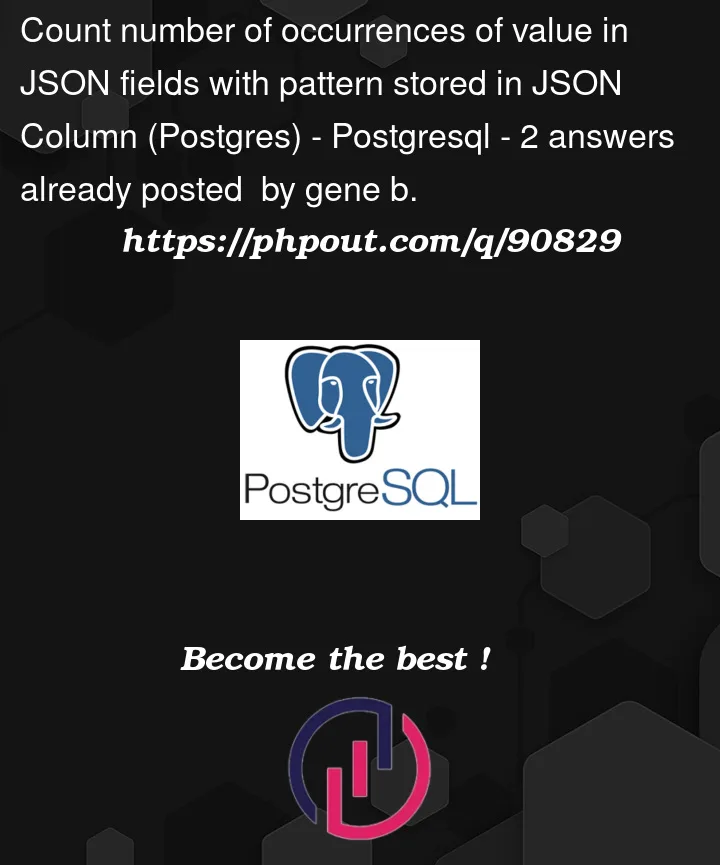I have a JSON column, telework, stored in Postgres which looks like
"{ ...,
"biweeklyWeek1-locationMon": "alternative",
"biweeklyWeek1-locationTues": "agency",
"biweeklyWeek1-locationWeds": "alternative",
"biweeklyWeek1-locationThurs": "alternative",
"biweeklyWeek1-locationFri": "alternative",
... ,
"biweeklyWeek2-locationMon": "alternative",
"biweeklyWeek2-locationTues": "agency",
"biweeklyWeek2-locationWeds": "alternative",
"biweeklyWeek2-locationThurs": "alternative",
"biweeklyWeek2-locationFri": "alternative",
... }"
I need to count the number of occurrences of "alternative" in the biweeklyWeek1-location* fields and biWeeklyWeek2-location* fields separately and select these two as separate fields in the main query. It’s possible that the values in these fields could be filled, blank (""), or null. Also, it’s possible that these fields are partially or completely missing in the JSON.
select a.id,
a.name,
a.telework->>??? as alternativePerWeek1,
a.telework->>??? as alternativePerWeek2,
...
Strangely enough, even when I do the following single example with -> a hard-coded ID, I get a NULL result even though I see that it shouldn’t be NULL:
select telework, telework->'biweeklyWeek1-locationMon' from ets.agreement_t where id = 24763;





2
Answers
Assumption: telework JSON column contains a list of (key, value) pair and key is in the format
biweekly?-location???.The output is like:
EDIT: Per comment, json_each() can also be used in SELECT
Output:
You can also parse the
key_valuecolumn to get what you needYou can use a scalar sub-query after unnesting the JSON using
json_each()Btw: the recommended data type to store JSON is
jsonb